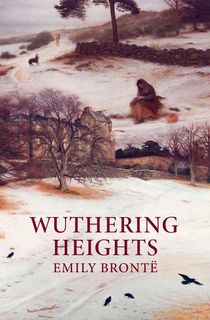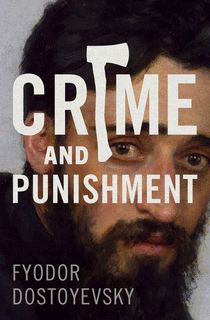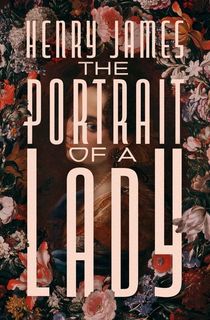In her essay collection Slouching Towards Bethlehem, Joan Didion muses on the attraction of certain stories. She uses film tycoon Howard Hughes as an example—a man who, at the time, seemed to be the center of all Los Angeles gossip. But why, Didion asks, was his misbehavior, misfortune, and money so universally captivating?
"Our favorite people and our favorite stories become so not by any inherent virtue," she writes, "but because they illustrate something deep in the grain, something unadmitted."
For Didion, telling and reading stories is an essential part of life. Our favorite novels, essays, or nonfiction books are enjoyable, yes, but their hold over us goes much deeper than simple entertainment. We may return to a particular story because it taps into something internal—and teaches us something about ourselves that we weren't even consciously aware of.
A few years ago, Didion wrote a list of her favorite books that was (very appropriately) taken out of her personal notebook. It represents the best of 20th century writing—from Hemingway's A Farewell to Arms to Gabriel García Márquez's One Hundred Years of Solitude—in addition to classics by Emily Brontë and Fyodor Dostoevsky. While they're all master classes in fine writing, one has to wonder what personal, "unadmitted" things they have revealed to Didion.

Didion's handwritten list of her most significant literary influences.
Photo Credit: Brain Pickings
A Farewell to Arms
Didion has named Hemingway one of the biggest, if not the biggest, influences on her writing. As a teenager, she read his books and, so impressed by his economy of words, typed them up herself—a learning exercise that taught her “how sentences work.” She particularly admires the opening lines of A Farewell to Arms, which she hailed as “perfect” in a Paris Review interview, and compared to “smooth rivers, clear water over granite, no sinkholes.”

Victory
Set in the islands of Indonesia, this Conrad classic follows the endangered love affair between Axel, a businessman-turned-recluse, and his younger musician lover, Lena. After hearing of Lena’s mistreatment within her orchestra—and of the unwanted attentions of a particularly unsavory suitor—Axel sweeps Lena off to his island where a band of criminals tests their relationship. Didion told the Paris Review that Victory is one of her “favorite books in the world,” and that she never starts a book without revisiting it first.

Guerrillas
It comes as little surprise that Didion draws inspiration from V.S. Naipaul, whose creative drive stems from a fascination with current events. In a review for the New York Review of Books, Didion praised how he wrote with “stunning, even numbing, physical immediacy.” The 1975 novel Guerrillas is her favorite, and though it's sparse in page count, it's dense in content: Naipaul examines colonialism, revolution, and sexual violence as his protagonists—two lovers from England and South Africa—acclimate to life on an island much different from their home countries.

Down and Out in Paris and London
Orwell’s 1933 memoir describes the impoverished underworlds of Paris and London, where he worked in restaurants and lived as a vagrant. Filled with grim but darkly hilarious anecdotes, it’s a harrowing portrait of poverty (perhaps too harrowing, as was the case for editor T.S. Eliot). Though Didion's self-professed favorite, it certainly isn't the only Orwell piece that has influenced her work. Her New York Times article “Why I Write” is modeled after Orwell’s essay of the same name.

Wonderland
Didion knows Oates on a somewhat personal level: Didion told the Guardian that dinner with the National Book Award winner gave her the feeling that “you were [her] material...Because everything is her material.” This comes as little surprise when you consider Oates’ prolificacy and career, which includes her acclaimed quartet about 20th century American life, Wonderland. Aside from mutual respect and admiration, Didion and Oates share another thing in common: Both would go on to write popular memoirs of grief and widowhood.

Wuthering Heights
Didion famously wrote about self-respect though, like anyone, she wasn't immune to self-loathing. In her 1961 essay, she mentions an "antidote to crying" that was once recommended to her: putting one's head in a paper bag. As Didion, who clearly identified with Brontë’s heroine, wrote: “It is difficult in the extreme to continue fancying oneself Cathy in Wuthering Heights with one’s head in a Food Fair Bag.”

The Good Soldier
Considered one of the greatest novels of all time, The Good Soldier is, according to its narrator, the “saddest story ever told.” Set before the outbreak of World War I, the fictional John Dowell recounts a tragic sequence of death, insanity, and the dissolution of personal relationships. In addition to the aforementioned Victory, Ford’s novel is one of the three books Didion returns to again and again—the third being The Great Gatsby.

One Hundred Years of Solitude
Didion’s novel A Book of Common Prayer follows the political and personal dramas that surround an enigmatic woman visiting Central America. According to an interview with the the New York Times, it was inspired by a trip to Márquez's native Colombia—an experience that not only opened Didion’s eyes to the differences between her country and South America, but proved One Hundred Years of Solitude was “far more social realism than it was fantasy.” In fact, the book’s fantastical elements were “quite reportorial,” she told journalist Sara Davidson.
Related: All the Books You Can't Put Down

Crime and Punishment
Dostoevsky's great Russian novel follows an impoverished young man who, so convinced of his own potential, believes he is justified in killing someone for money. Plagued by guilt, he finds him questioning what is truly "right" and "wrong" after the murder—a subject that Didion herself is not unfamiliar with. Her nephew, who recently made a documentary about his famous aunt, describes her as having a “moral voice.”

Appointment in Samarra
Another landmark work of 20th century literature, Appointment in Samarra charts a wealthy man’s three-day downward spiral, which ends in suicide. Didion actually calls its self-destructive protagonist, Julian English, a poor example of self-respect in her famous piece for Vogue.

The Executioner's Song
“No one but Mailer could have dared to write this book,” Didion wrote, before calling The Executioner's Song “absolutely astonishing.” Indeed, this Pulitzer Prize winner is an ambitious, unusual story, as it charts Gary Gilmore’s road to capital punishment in the late 1970s. After being convicted of a double homicide, Gilmore notoriously lobbied for his own execution—and ultimately succeeded, despite the death penalty’s very recent reinstitution. As Mailer speaks with those connected to the criminal and the case, he not only paints a picture of Gilmore himself but of the dark, violent side of America.
The Complete Novels of Henry James

The Portrait of a Lady
Unable to pick a favorite Henry James novel, Didion simply chose them all. “He somehow got all the possibilities into every sentence,” she once told the Paris Review. James' talent intimidated a young Didion who, a mere aspiring writer at the time, felt her writing could never achieve the same effect: “I was paralyzed by [his novels] for a long time.”

Speedboat
The Guardian once likened Adler to “Joan Didion’s younger and slightly more pugnacious sister.” In fact, most critics have lumped the two women—and a third, Elizabeth Hardwick—into the same category of writers: female journalists of the 1970s who occasionally dabbled in fiction. Speedboat, Adler’s most famous work, bears some similarities to Didion’s Play It As It Lays, as they both use a female narrator to tell a traditionally male “questing” story.

Go Tell It On the Mountain
Again, the theme of morality takes center stage in this Didion pick. Go Tell It On the Mountain's hero, John, is a teenager living in 1930s Harlem when he notices the hypocrisy of his faith community—how it preaches “belonging,” but is also racist and homophobic. Baldwin had experienced a similar disillusionment as a young man, and while he acknowledged religion was a source of inspiration for many, he also felt it was morally corrupt.

Notes of a Native Son
Notes of a Native Son sealed Baldwin as a keen observer and critic of social change—something Didion was as well, though a decade or two later. Here, Baldwin writes of American black life just prior to the civil rights movement, commenting on the power of the protest novel, the race issues of the time, his troubled relationship with his father, and much more.

The Berlin Stories
While Didion admired Isherwood—he was, after all, one of the brightest stars of the L.A. literary scene—the feeling wasn’t exactly mutual. One of Isherwood’s private journals refers to Didion and her husband, John Gregory Dunne, as “Mrs. Misery and Mr. Know-It-All.” Like Didion, he wrote about South America—though The Berlin Stories’ takes place in Germany’s capital just prior to World War II. The book inspired the hit broadway musical Cabaret.

Collected Poems
Lowell was one of the most revered American poets of the 20th century and was, coincidentally, the husband of one of Didion’s contemporaries, Elizabeth Hardwick. With his wife, poet Robert B. Silvers, and several other literary greats, he helped found the New York Review of Books—a publication to which Didion frequently contributed and continues to contribute even now.

Collected Poems
Auden’s poem “Funeral Blues” was comforted Didion in the wake of her husband’s sudden death, which she recollects in her first memoir on grief, The Year of Magical Thinking. Additionally, Didion once suffered a humiliating experience in which she, just a college student, interviewed Auden and “was so absolutely terrified that [she] couldn’t think of any questions.”

The Collected Poems
Stevens won a Pulitzer Prize for this massive 1955 collection of his most-loved modernist poems. Didion quotes “Of Mere Being” in her novel Democracy, which also carries some echoes of the previously mentioned George Orwell.
Keep Reading: Reader Reader: David Bowie's Favorite Books
Featured photo of Joan Didion courtesy of Alchetron; scan of handwritten list via Brain Pickings
















